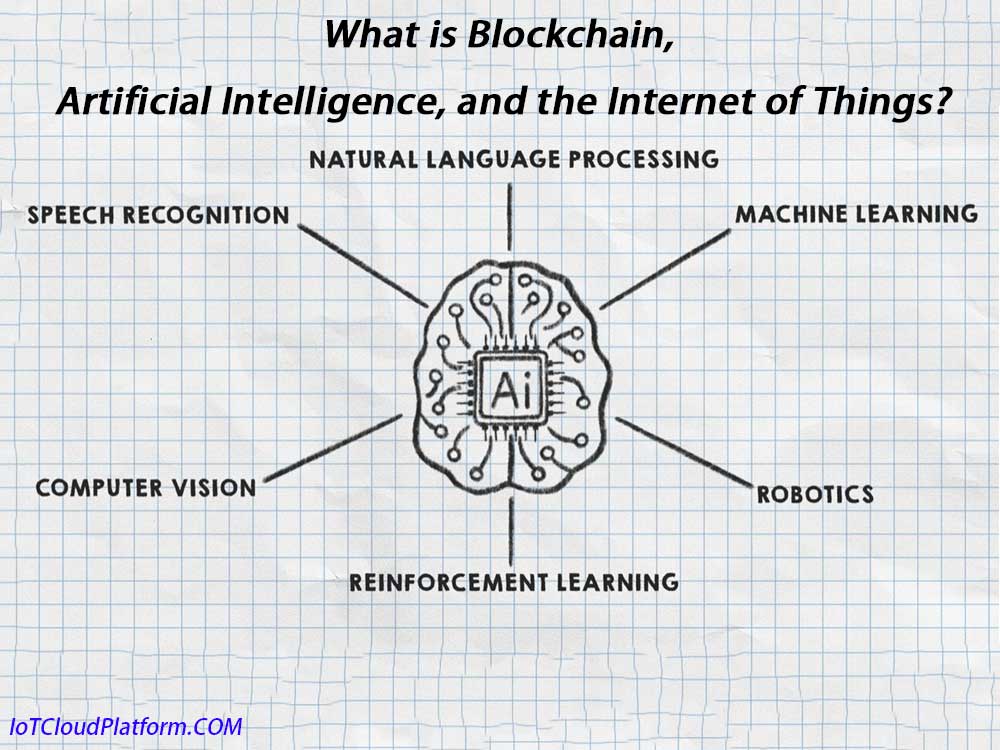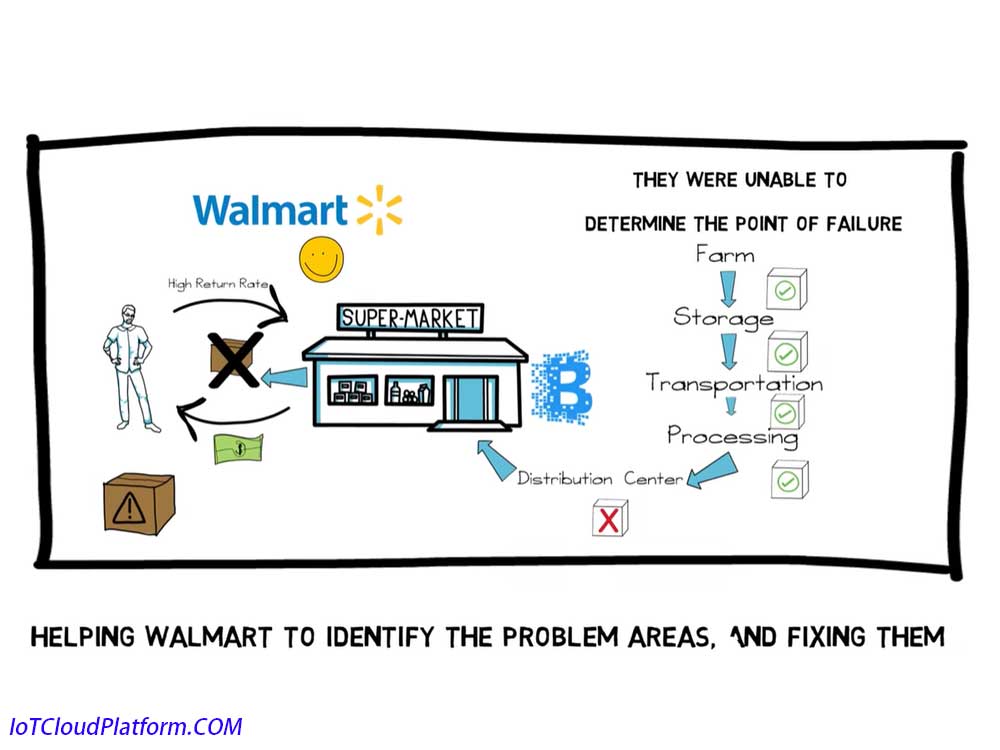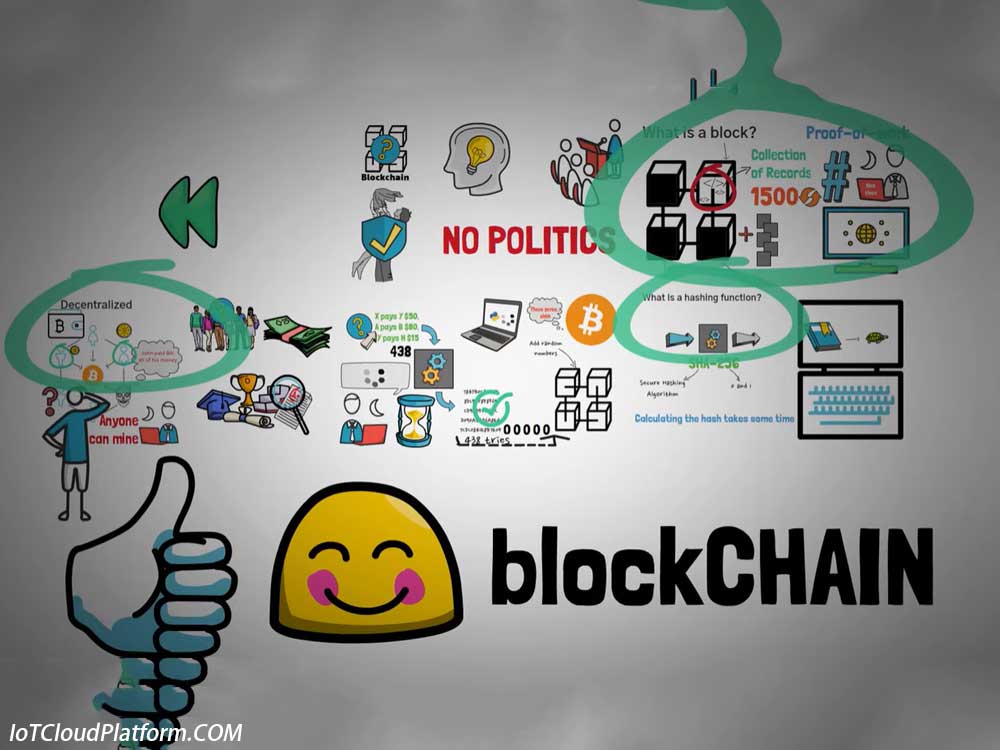
What is Blockchain, Artificial Intelligence, and the Internet of Things?
Blockchain, artificial intelligence, and the Internet of Things are three important technologies in the current science and technology field. They each have unique advantages and application scenarios, and show a broader development prospect in mutual integration.
The following will introduce these three technologies in detail and explore the relationship between them.
Blockchain
Definition and Basic Principles
Blockchain is a distributed database technology that stores data on a chain composed of multiple blocks and uses cryptographic methods to ensure the immutability and security of data. Each block contains the hash value of the previous block, thus forming an immutable data chain.
The decentralized nature of blockchain enables it to share and verify data without a central control agency.
Main Features
- Decentralization: Each node in the blockchain network stores complete ledger data, and the failure of any single node will not affect the operation of the entire network.
- Security: Blockchain uses encryption technology to protect data security and ensure that data is not tampered with during transmission and storage.
- Transparency: All data on the blockchain is open and transparent, and anyone can query and verify it.
- Immutability: Once data is written to the blockchain, it cannot be deleted or modified, ensuring the authenticity and integrity of the data.
Application fields
Blockchain technology is widely used in digital currency (such as Bitcoin), finance, supply chain management, identity authentication, copyright protection and other fields. In the financial field, blockchain technology can simplify transaction processes, reduce transaction costs and improve transaction efficiency; in the field of supply chain management, blockchain can achieve full traceability of products from production to sales, and improve the transparency and credibility of the supply chain.

Artificial Intelligence
Definition and Basic Principles
Artificial intelligence is a technology that simulates human intelligence, which enables computers to perform complex tasks such as image recognition, natural language processing, and speech recognition. Artificial intelligence systems extract valuable information from large amounts of data and automatically adapt to new situations by learning and optimizing algorithms.

Main features
- Efficiency: Artificial intelligence systems are able to process large amounts of data and give results quickly.
- Accuracy: Through continuous learning and optimization, artificial intelligence systems are able to continuously improve the accuracy of predictions and decisions.
- Adaptability: Artificial intelligence systems are able to automatically adjust strategies based on new data and situations to adapt to complex and changing environments.
Application fields
Artificial intelligence is widely used in healthcare, traffic control, game development, robotics and other fields. In the healthcare field, artificial intelligence can assist doctors in disease diagnosis and treatment plan formulation; in the traffic control field, artificial intelligence can realize functions such as intelligent traffic signal control and automatic driving; in the game development field, artificial intelligence can generate more realistic game scenes and character behaviors.
Internet of Things
Definition and basic principles
Internet of Things (IoT) refers to the real-time collection of characteristic information of people or objects (such as heat, light, sound, electricity, biology, location, etc.) through various intelligent sensors, radio frequency identification technology (RFID), global positioning system (GPS) and other devices, and through various network access, to achieve intelligent perception, identification and management of people and objects.

The Internet of Things enables people or objects that can be independently addressed to interconnect and form a situation of “interconnection of all things”.

Main features
- Interconnection: The Internet of Things realizes interconnection and data sharing between devices.
- Intelligence: Through the Internet of Things technology, intelligent control and remote management of devices can be achieved.
- Real-time: The Internet of Things can collect and transmit data in real time, providing timely support for decision-making.
Application fields
The Internet of Things is widely used in smart homes, smart cities, smart factories, and smart healthcare. In the field of smart homes, the Internet of Things can realize the intelligent control and linkage of home appliances; in the field of smart cities, the Internet of Things can improve urban management efficiency and service levels; in the field of smart factories, the Internet of Things can realize the automation and intelligence of the production process; in the field of smart healthcare, the Internet of Things can monitor the health status of patients in real time and provide telemedicine services.
The relationship between blockchain, artificial intelligence and the Internet of Things
The Internet of Things is the basis of blockchain and artificial intelligence
The Internet of Things provides a rich data source for blockchain and artificial intelligence by connecting various physical devices and collecting data in real time. These data are the basis for blockchain to achieve data sharing and verification, and are also an important basis for artificial intelligence to learn and optimize.

Blockchain provides security for the Internet of Things
The distributed ledger technology and encryption technology of blockchain can ensure the security and integrity of data in the Internet of Things. In the Internet of Things, blockchain can be used to store sensitive data such as device identity information and transaction records to prevent data from being tampered with or leaked.
Artificial intelligence provides intelligent support for the Internet of Things
Artificial intelligence can provide intelligent support and decision-making basis for the Internet of Things by analyzing the massive data in the Internet of Things.
For example, in the field of smart homes, artificial intelligence can automatically adjust the settings of home appliances according to the habits and needs of users; in the field of smart factories, artificial intelligence can monitor the operating status of production equipment in real time and perform fault prediction and maintenance guidance.
The three promote each other and develop together
There is a close mutual promotion relationship between blockchain, artificial intelligence and the Internet of Things. Blockchain provides a secure data storage and transaction environment for artificial intelligence and the Internet of Things; artificial intelligence provides intelligent application scenarios and solutions for blockchain and the Internet of Things; and the Internet of Things provides rich data sources and application scenarios for blockchain and artificial intelligence. The mutual integration and common development of the three will promote continuous innovation and progress in the field of science and technology.
In summary, blockchain, artificial intelligence and the Internet of Things are the three major technologies in the current field of science and technology. They each have unique advantages and application scenarios, and show a broader development prospect in mutual integration. In the future, with the continuous development and improvement of these three technologies, we will see more intelligent, secure and efficient application scenarios.
FAQs
The main challenges faced by blockchain in applications include:
Scalability issues: As the number of nodes and transactions in the blockchain network increases, the system’s processing power and storage capacity may be limited, resulting in slower transaction speeds and higher costs.
Energy consumption: The proof-of-work (PoW) consensus mechanism adopted by some blockchains (such as Bitcoin) requires a large amount of computing resources, which consumes a lot of electricity, causing environmental and cost issues.
Privacy protection: Although blockchain provides high data transparency, how to achieve data sharing while protecting user privacy is still a difficult problem.
Regulatory compliance: The decentralized nature of blockchain technology makes supervision complicated. How to ensure that blockchain applications comply with legal and regulatory requirements is an important issue.
The main challenges faced by artificial intelligence in applications include:
Data quality and quantity: The performance of artificial intelligence systems is highly dependent on the quality and quantity of training data. Insufficient data or data bias may lead to reduced model performance.
Interpretability: Although many deep learning models have excellent performance, their decision-making process is difficult to explain, which is a challenge in fields that require high credibility, such as medicine and finance.
Ethics and privacy: AI may involve user privacy and ethical issues in applications, such as facial recognition, intelligent recommendation and other applications may cause controversy.
Technology popularization and talent shortage: Although AI technology has developed rapidly, its popularity is still limited, and there is a shortage of professional talents, which limits its widespread application.
The main challenges faced by the Internet of Things in applications include:
Device heterogeneity: There are many types of IoT devices, and the protocols and standards are not unified, which makes it difficult for devices to interconnect.
Security and privacy protection: IoT devices are often exposed to public networks and are vulnerable to attacks. The data collected by the devices involves user privacy. How to ensure data security and privacy protection is an important issue.
Network stability and reliability: The number of IoT devices is huge and widely distributed, which puts higher requirements on network stability and reliability.
Data processing and analysis capabilities: The amount of data generated by IoT devices is huge. How to efficiently process and analyze this data to extract valuable information is a challenge.
Common problems that may exist in the integration of blockchain, artificial intelligence and the Internet of Things include:
Difficulty of technical integration: The three technologies each have their own complexity and uniqueness. How to effectively integrate them to achieve collaborative work is a technical problem.
Performance bottleneck: Converged applications may face higher performance requirements, such as processing speed, storage capacity, etc. How to overcome these bottlenecks is a challenge.
Security and privacy protection: In converged applications, how to ensure the secure storage of data on the blockchain, the secure transmission in the Internet of Things, and the privacy protection during the processing of artificial intelligence is an important issue.
Standardization and interoperability: The standardization and interoperability issues between different blockchain platforms, artificial intelligence frameworks, and Internet of Things protocols are a major obstacle in converged applications.
About IOT Cloud Platform Technology
The Internet of Things Cloud Platform (iotcloudplatform.com) is a professional Internet of Things portal, engaged in Internet of Things advertising and marketing services, providing the best Internet of Things cloud platform promotion and marketing services, new media advertising services, and digital marketing solutions for global Internet of Things technology companies.
The Internet of Things Cloud Platform (iotcloudplatform.com) technology has cutting-edge Internet of Things technology resources, including Internet of Things chips, cellular Internet of Things, Internet of Things cloud computing, smart homes, smart new energy vehicles, smart photovoltaics, edge computing, industrial Internet of Things, agricultural Internet of Things, automotive Internet of Things, artificial intelligence Internet of Things, medical Internet of Things, robotic Internet of Things, smart logistics, smart cities, smart lighting, logistics Internet of Things, AI technology research, military Internet of Things, etc.




